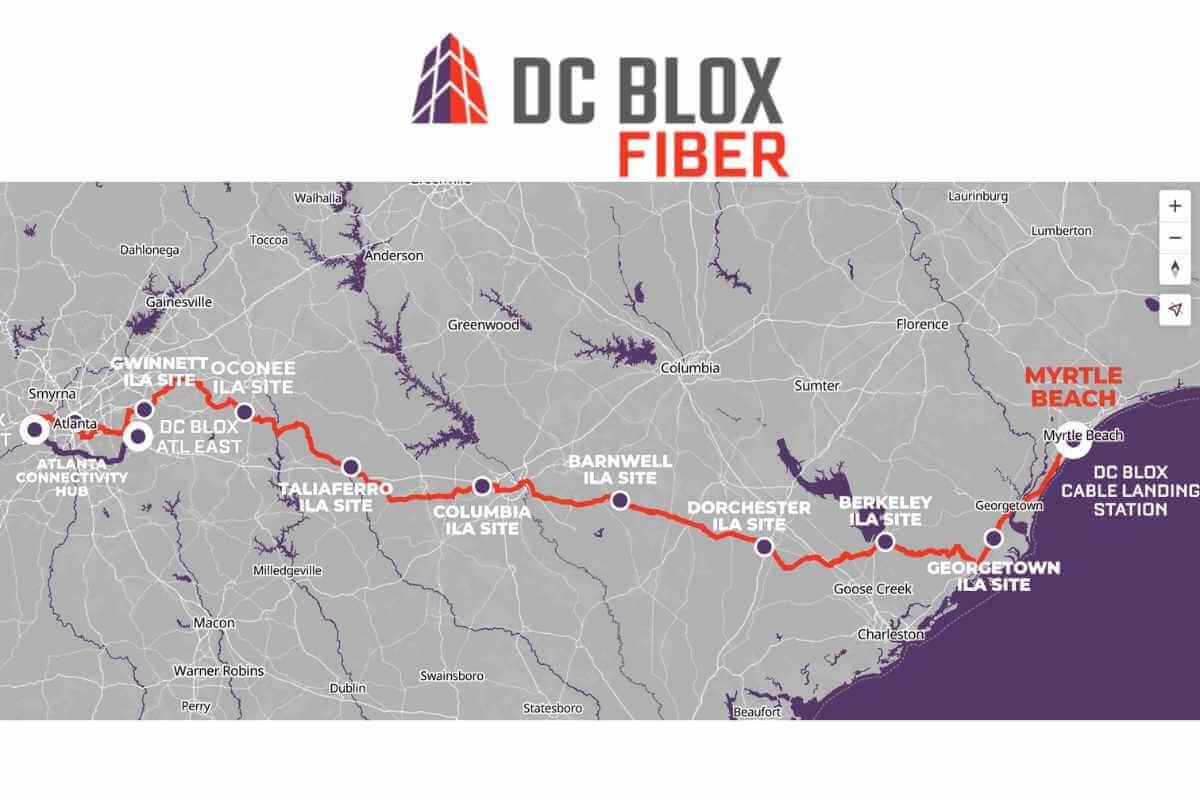
DC BLOX, a provider of connected data centers and fiber network solutions in the Southeastern United States, has announced the completion of its new dark fiber route connecting the Myrtle Beach Cable Landing Station (CLS) to Atlanta. The newly established East-West route spans from Myrtle Beach, South Carolina, near Charleston, through Augusta, Georgia, and into Atlanta, including major connectivity centers such as 56 Marietta Street and the data center cluster in Lithia Springs, Georgia.
Also Read: DC BLOX Expands Birmingham Data Center for High-Performance Computing
Regional Connectivity Boost
"This high-capacity East-West route serves as the new backbone to the Southeast region, enabling hyperscalers, global and regional communications providers, local ISPs, and enterprises to connect regionally and internationally," said DC BLOX on Thursday.
Kurt Stoever, Chief Operating Officer of DC BLOX, emphasised the importance of digital infrastructure in driving economic prosperity, stating, "With our regional colocation data centers, the Myrtle Beach CLS, our regional network, and this new dark fiber route, DC BLOX is building the infrastructure needed to support the Southeast’s rapid growth."
DC BLOX said in addition to facilitating regional connectivity, the East-West route offers route diversity for data traffic between Northern Virginia and Atlanta. Furthermore, the company is also building a dark fiber ring around Atlanta, which will connect into two hyperscale-ready data center facilities in development east and west of the city. The metro-Atlanta fiber ring will also connect to the East-West route, further expanding global connectivity options from the area.
Also Read: Windstream Expands Network With Beach Route Dark Fiber Alliance
Beach Route Completion
Windstream has previously announced its Beach Route, which will provide connectivity from Raleigh, North Carolina, to Myrtle Beach, South Carolina, and then to points further South.
With the East-West route passing through rural areas across South Carolina and Georgia, it also serves as a critical link for ISPs and local cooperatives aiming to provide broadband services to underserved and rural communities, the official release said.















